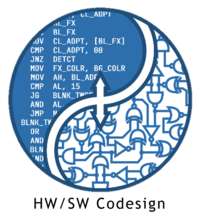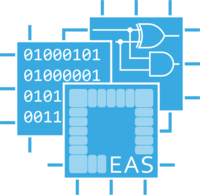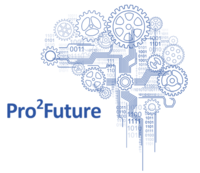Hardware/Software Codesign

Mehr Informationen zur Arbeitsgruppe finden Sie hier.
Im Moment sind keine studentischen Abschlussarbeiten ausgeschrieben.
Industrial Informatics

Mehr Informationen zur Arbeitsgruppe finden Sie hier.
- Cybersecurity Norm TISAX for SMEs
- Digital Badges and Certification System
- Automotive Cybersecurity Assessment Tool Feature
- Spasm detection in gait trainer based on force measurements
- Gait Analysis using smartsoles
- Adaptive testing of embedded real-time systems
- Lane Detection: Unleashing the Power of Raspberry Pi in Automotive World
Embedded Architectures & Systems

Mehr Informationen zur Arbeitsgruppe finden Sie hier.
Embedded Learning and Sensing Systems

Mehr Informationen zur Arbeitsgruppe finden Sie hier.
- Efficient dynamic neural networks on AR glasses
- Efficient machine learning on AR glasses
- Model folding on large vision models
- Parameter-efficient Adaptationfor Object Detection Models on Mobile Devices
Real-world Challenges for Adversarial Patches in Object Detection- Folded Object Detection Models
Does Merging Channels Amplify Bias in DNNs?- Integration of Spatiotemporal Data into LLMs
AI-Driven Vehicle Data Integration
Low-Power Embedded Networked Systems

Mehr Informationen zur Arbeitsgruppe finden Sie hier. Bitte beachten Sie, dass Sie für die Durchführung der meisten Projekte/Thesen in unserer Gruppe bezahlt werden können.
- Speaker Distress Detection using Low-Power Embedded IoT Devices
- Centimetre-Accurate Ranging in Non-Line-of-Sight Conditions
- Simulating the Performance of IoT Protocols using Data Collected on Real-World Testbeds
- Towards Location-Aware BLE Devices
- Evaluating the Localization Performance of Bluetooth 6.0's Channel Sounding
- Bluetooth LE Audio: The Future of Wireless Audio?
- Are Implicit Certificates still Necessary? The Future of IoT Security
- Enhancing Low-Power Wireless Protocols based on Concurrent Transmissions
- Towards a Battery-free IoT
- Low-Latency and High-Fidelity Wireless Audio using UWB Technology
Leveraging AI Processors for Machine Learning on MicrocontrollersRobust Speaker Recognition for Deeply Embedded IoT DevicesUsing the Next-Generation UWB Devices to Design Location-Aware IoT ApplicationsDetecting and Mitigating Coexistence Problems through RF Spectrum AnalysisTowards BLE-enabled PacemakersBuilding a Low-Power Wireless "Smart Office Labelling System"
Cognitive Products

Mehr Informationen zur Arbeitsgruppe finden Sie hier.
